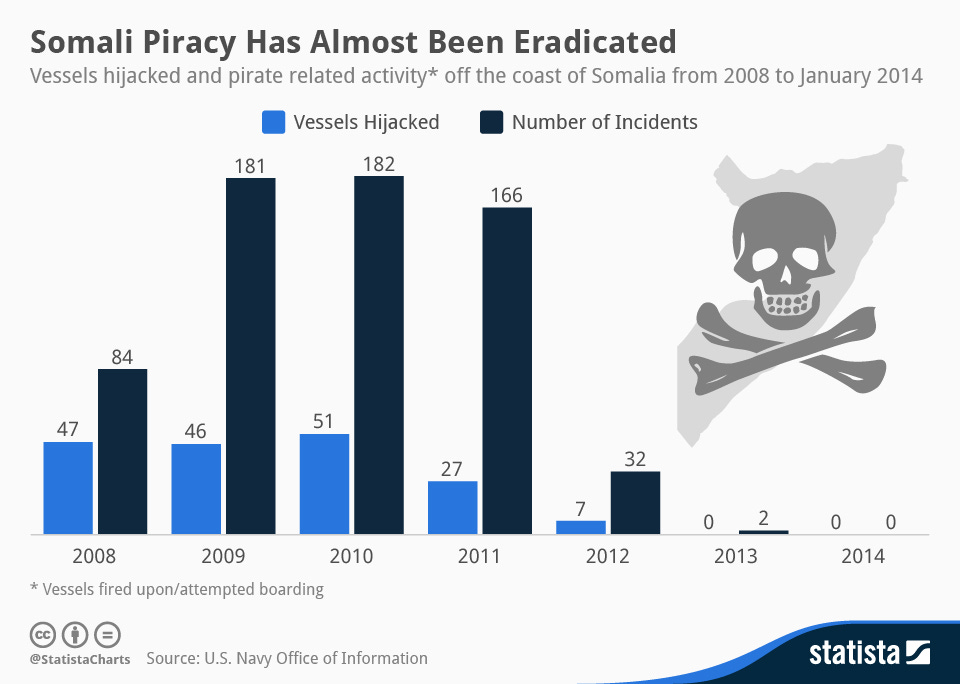image from undercurrentnews.com
In late November 2024, a Chinese-owned fishing vessel with 18 crew members was hijacked off the northeastern coast of Somalia. Lets face it, Somali pirates are nothing new and something that occurs at a high enough frequency to where normally we gloss over any news story about the subject … but this story has an interesting twist.
That being when the ship's own security guards allegedly collaborated with local armed men to seize the vessel.
The hijackers have reportedly demanded millions of dollars in ransom for the release of the crew and vessel. And according to local authorities, the ship and crew are being moved around as to make a rescue difficult.
The vessel, registered under Taiwan's flag, had been operating in Somali waters under a fishing license issued by Puntland authorities, which expired in 2020.
This event underscores the persistent challenges of maritime security off Somalia's coast where threats of piracy is extremely high.
While piracy incidents had significantly declined since their peak in 2011—when over 160 attacks were recorded—recent reports indicate a concerning resurgence. In the first three months of 2024, the International Maritime Bureau (IMB) recorded 33 incidents of piracy and armed robbery against ships off the coast of Somalia, an increase from 27 incidents over the same period in 2023.
Notice that by 2014 such incidents were virtually non existent, only to make a strong comeback in the following decade.
The collaboration between the vessel's security personnel and pirates in the recent hijacking is particularly alarming. The employment of armed guards on merchant vessels has been a common countermeasure against piracy. However, this incident highlights potential risks associated with such practices, especially when the guards themselves become complicit in criminal activities. The legal and ethical implications of hiring armed security for ships have been subjects of debate, with concerns about the use of force and the potential for escalation.
According to news reports, the fishing license of the hijacked vessel, which was originally issued in 2020 had expired. This statement, if true, would be consistent with Chinese fishing habits around the globe.
China’s distant-water fishing fleet, the largest in the world with over 17,000 vessels, dominates global fishing operations, accounting for 40% of all international activity. While this fleet meets seafood demand, it is often implicated in illegal, unreported, and unregulated (IUU) fishing, including operating without licenses, overfishing, and damaging marine ecosystems through destructive practices like bottom trawling. These actions deplete local fish stocks, harm marine habitats, and undermine coastal economies. Reports from Global Fishing Watch and the International Maritime Bureau highlight frequent violations, with vessels often disabling tracking systems to avoid detection. Addressing these practices requires global enforcement and sustainable regulations to mitigate ecological and economic impacts.
For reference, the following image shows global fishing trends as a heat map which gives an idea of where fishing is the most common around the world.
While the following image shows the frequency and routes of fishing around the Arabian Sea where the hijacking took place.
Piracy off the Somali coast remains a persistent challenge despite years of international efforts to curb it. Recent hijackings, like the Chinese fishing vessel incident, highlight the evolving nature of this threat, including alarming events such as the complicity of hired security personnel.











